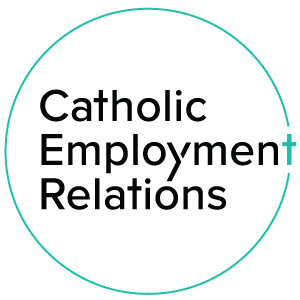Pre-Shift work – what is it and when do employees need to be paid for it?
Many employers have rules in place requiring that employees be ‘shift ready’ from the time their shift starts. However, recent cases have called this practice into question, ruling that ‘pre and post shift’ tasks must be paid in some circumstances. To avoid the risk of underpayment claims, employers should ensure that any pre or post shift duties are not considered work that requires remuneration. This article will look at recent cases in this area and help you understand what activities count as work that requires payment.
Recently there have been cases that turn to the point of what activities constitute work time as opposed to the employee’s personal time getting ready for work. Ultimately, it turns to whether the activities are for the benefit of the employer, and this is demonstrated in the cases below.
The ongoing matter of Frank Sheehan v Theiss Pty Ltd has been appealed to the Federal Court and highlights key factors that employers need to consider when assessing what constitutes ‘time worked’ to avoid underpayment claims. In this case, employees claimed that they should be paid for a 20-minute bus trip from their worksite to the security gates at the end of each shift.
Mr Sheehan argued his hours of work finished when he reached the access gate, being the security gate on the boundary of the Project. It took 20 minutes to travel from the crib hut to the access gates and he was therefore entitled to be paid for an additional 20 minutes of each workday.
The Court has considered that working hours included the time taken by the worker to reach the site access gates. Despite travel time to and from work usually not considered to be ‘time worked’.
In another similar example which was heard in the Fair Work Commission in 2018 and the Federal Circuit Court in 2022 (SDA v Aldi Foods Pty Ltd [2022]), Aldi was liable to pay employees ‘pre-start’ time. In this case, employees were required to complete various tasks necessary to enable them to commence work at the beginning of their shift. The tasks included completing pre-start checks on stock pickers and other administrative tasks.
Aldi did not pay the employees for this time, rather they paid the employees when they were ‘ready’ to start working. Aldi’s argument was that the pre-shift tasks had always been performed prior to the commencement of a shift and were therefore not paid.
The Fair Work Commission has also dealt with pre-shift duties in two Queensland nursing homes that required rapid antigen testing prior to the commencement of each shift (see Australian Nursing and Midwifery Federation v Johnson Stenner Aged Care Pty Limited T/A New Auckland Place (21 April 2023) and Australian Nursing and Midwifery Federation (145V) v Jeta Gardens (QLD) Pty Ltd T/A Jeta Gardens [2022] FWC 3039 (16 November 2022)). In these cases the decision turned to the wording of the relevant enterprise agreements. The FWC indicated that rapid antigen testing done under employer direction is considered time worked, however, when the employee chose to undertake the testing at home at an earlier time this was not time worked because the enterprise agreement did not contemplate work performed remotely at a time of their own choosing.
What can we learn from this example?
The case is a timely reminder for employers to ensure that every clause in an enterprise agreement is drafted carefully to reflect the employer’s actual intentions, to avoid exposure for underpayments.
It is important for employers to remember that although employees were not previously paid for the time spent conducting ‘pre-shift’ tasks, this does not change the fact that the activities are for the purposes of ‘work’ under the Fair Work Act 2009 (Cth).
It is crucial for employers to fully understand their pay-related obligations under relevant modern awards and industrial agreements.
What are some examples of specific tasks that are not considered ‘work’?
Activities that benefit the employees, such as storing personal effects, putting on uniforms or PPE, storing or consuming food, or socially engaging with colleagues prior to scheduled work, may be less likely to be considered work.
What is considered ‘work’?
Pre-shift tasks that an employee is required to perform in order to be job ready to commence work at the beginning of their shift, could be considered ‘work’ for which employees must be paid.
It is common practice for employees to be paid for time spent before "clocking in" or after "clocking out" on activities that are necessary to perform their jobs. For example, an employee may need to unlock the doors to a retail store, turn on the lights, unpack stock/items, and make sure the store is tidy before customers come in. Other tasks such as completing pre-start checklists when operating machinery, completing incident reports and completing orders for stock replenishment are all tasks that are considered ‘work’.
Essentially ‘work’ can be defined as any duties that are entirely for the benefit of the employer are likely to be considered ‘work’ for which employees must be paid.
Tips for employers
Employers must keep and maintain all required pay-related records; and periodically review/audit payroll compliance, particularly if there is a change in workplace practices or policy.
Tasks which need to be performed should be reviewed before a shift commences and if necessary, employers must consider whether employees should be paid for the pre-shift tasks they are performing.
Employers should consider the following guiding principles in assessing whether pre-work activities undertaken by employees constitute work or not, and hence whether they are entitled to be paid for these activities.
Do any modern award/s and/or enterprise agreement/s apply to the employees? If so, do these instruments specify activities that constitute work that is payable (or alternatively, expressly state task/s that aren’t work and are unpaid)?
Are the pre-work activities performed by the employees to the benefit of the employer? If so, this may lead to a finding that the activities are work.
Are the employees required (directly or indirectly) to be at their workplace at a specific time prior to the commencement of their shift to be available to provide service for the employer? If so, this may lead to a finding that that employees should be paid for this time.
Employees may take into consideration whether employees would face disciplinary action if they do not perform the pre-work activities or meet the requirement to be at work before commencing their shift? If so, this may lead to a finding that the activity is deemed to be work (and hence payable).
Employers may have robust "set off" arrangements in place, where it may be defensible that any payments made to employees can be apportioned against any unpaid pre-work activities however, it is advisable to obtain advice in this area from CER.
If you are unsure if employees are entitled to receive payment for work that is required to be completed for pre-work tasks, or alternatively at the end of an employee’s shift, please reach out to CER and we can provide relevant advice.

